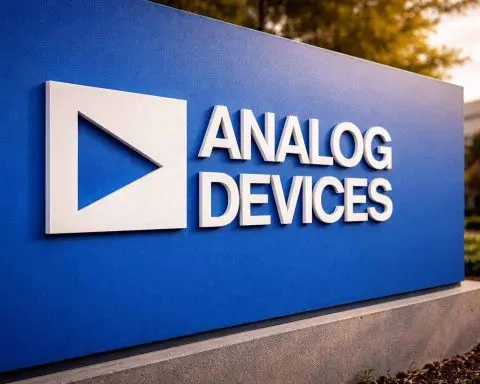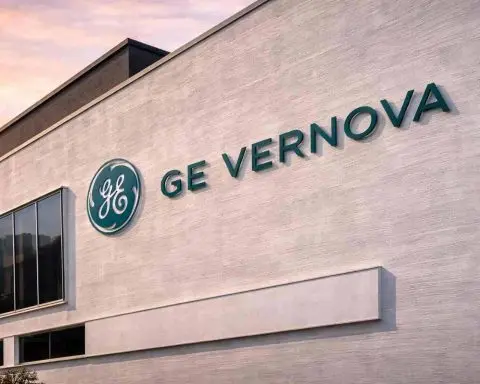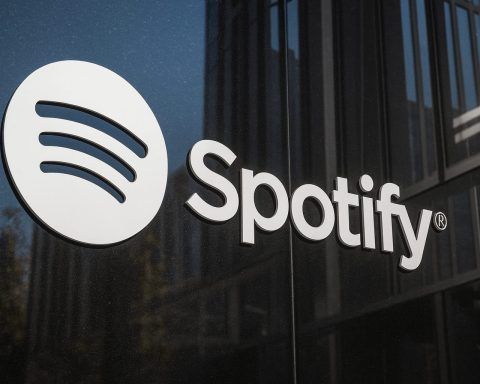- Bridgewater Associates more than doubled its Nvidia stake and added to Alphabet and Microsoft holdings in Q2, underscoring conviction that AI mega-caps will drive market gains.
- On August 14, Oracle and Alphabet’s Google Cloud announced a deal to offer Google’s Gemini generative AI models through Oracle Cloud and to integrate Vertex AI, letting Oracle customers access Gemini on Google infrastructure.
- Tesla scrapped its in-house Dojo AI supercomputer and pivoted to a unified AI chip roadmap dubbed AI5 and AI6, signaling continued reliance on external GPUs and benefiting Nvidia.
- On August 14, Nvidia stock fell about 2.5% for the week to around $167 as Jensen Huang warned silicon photonics is not ready to displace copper, delaying any photonics-driven topology shift.
- On August 14, Intel shares jumped over 7% after reports the Trump administration was considering a U.S. government stake in Intel, with after-hours gains about 2.6%.
- A White House-confirmed export deal on August 12 allowed Nvidia and AMD to resume selling advanced AI chips to China in exchange for 15% of sales revenue to the U.S. government, briefly lifting Nvidia’s intraday market cap to about $4.5 trillion.
- SoftBank Group reported a net profit of ¥421.8 billion ($2.9 billion) for the April–June quarter, and its stock rose more than 13% to a Tokyo record on August 14.
- Hon Hai Precision (Foxconn) posted Q2 net profit up 27% year-on-year and forecast Q3 enterprise AI server revenue to jump 170% year-on-year due to exploding AI server demand.
- Eli Lilly announced a collaboration worth up to $1.3 billion with Superluminal Medicines to use AI to discover obesity and metabolic disease drugs, granting Lilly exclusive rights to GPCR-targeting small-molecule candidates with upfront payments, milestones, equity investment, and royalties.
- Palantir Technologies, up about 144% year-to-date, fell roughly 2% on August 15 after short-seller Andrew Left bet against it, despite strong Q2 earnings on August 4 and a multi-year AI partnership with SOMPO announced on August 12.
AI-related stocks around the world saw a whirlwind of developments over the past two days. From Wall Street hedge funds piling into big-tech AI winners to billion-dollar partnerships in healthcare, the market was awash in news. Major U.S. tech firms like Nvidia, Alphabet, Microsoft, Amazon, Meta, and Tesla remained at the forefront of the rally, while emerging AI players also grabbed headlines with upbeat earnings and deals. At the same time, regulators and analysts weighed in – flagging both opportunities and risks. Below is a comprehensive roundup of the key AI stock news from August 14 and 15, 2025, organized by theme and region for clarity.
U.S. Big Tech: Hedge Funds Bet Big and Cloud Giants Partner Up
Hedge Funds Double Down on AI Titans: New disclosures showed that some of Wall Street’s largest hedge funds significantly boosted their stakes in big-tech “AI winner” stocks during Q2. Firms like Bridgewater Associates, Tiger Global, and others “increased their exposure to Big Tech… amid a generational boom in the growth of artificial intelligence” reuters.com. In particular, Bridgewater more than doubled its position in Nvidia and added to Alphabet and Microsoft holdings reuters.com, underscoring conviction that these AI leaders will continue to drive market gains. Indeed, just four AI-driven megacaps (e.g. Nvidia and its peers) have been responsible for roughly 60% of the S&P 500’s gains this year finomgroup.com. “The ‘Magnificent 7’ mega-cap tech companies [are] must-own pillars… the world’s most crowded trade”, noted a recent Bank of America survey ts2.tech. Investors are rotating back into these momentum names after a brief mid-year pullback, anticipating that their heavy AI investments will translate into outsized growth.
Oracle & Google Forge AI Cloud Alliance: A major partnership was announced between Oracle Corp. and Alphabet’s Google Cloud that could reshape the cloud AI landscape. On August 14, the companies revealed a deal to offer Google’s upcoming “Gemini” generative AI models through Oracle’s cloud services and enterprise apps reuters.com. This means Oracle’s customers will soon be able to access Google’s most advanced AI for text, image, and video generation via Oracle Cloud. The models will actually run on Google’s infrastructure, but Oracle will integrate Google’s Vertex AI platform into its offerings reuters.com, essentially reselling Google’s AI to Oracle clients. For Oracle, the move aligns with its strategy of providing a “menu” of third-party AI tools rather than pushing only its own reuters.com. For Google, it’s another avenue to expand the reach of its AI cloud services and win enterprise customers away from rivals like Microsoft reuters.com. This follows Oracle’s similar AI deal in June with Elon Musk’s startup xAI, and highlights the intensifying competition among cloud giants to distribute powerful AI models. Oracle’s stock ticked up on the news, while Alphabet shares held near record highs – reflecting optimism that such partnerships will broaden AI adoption (and cloud revenue) across corporate America.
Tesla’s Dojo U-Turn – A Boost for Nvidia: In the electric vehicle realm, Tesla made waves with an unexpected pivot in its AI strategy that cheered Nvidia investors. CEO Elon Musk took to social media to announce that Tesla is sidelining its in-house “Dojo” supercomputer project, which had been a moonshot effort to develop Tesla’s own AI chips and infrastructure for autonomous driving nasdaq.com nasdaq.com. Musk called the stand-alone Dojo system “an evolutionary dead end,” saying Tesla will instead focus on a new unified AI chip roadmap (projects dubbed “AI5” and “AI6”) nasdaq.com. Analysts at The Motley Fool noted this effectively keeps Tesla reliant on external semiconductor suppliers. “This should be seen as a major win for Nvidia, as Tesla will likely remain a customer” rather than trying to replace Nvidia’s GPUs with its own chips nasdaq.com. Over the past year, Tesla had touted Dojo as a potential differentiator (vertical integration of its AI compute needs), but the change in plans suggests the company will continue purchasing high-performance AI processors to power its full self-driving (FSD) system and forthcoming robotaxi fleet. Nvidia – already the dominant supplier of AI chips – stands to benefit directly from Tesla’s shift, and its stock got an extra jolt of optimism on the prospect of retaining Tesla’s sizable AI hardware business.
Big Tech Holding Near Highs: Other tech behemoths were less in the spotlight these two days but still made incremental news as they press their AI advantages. Alphabet (Google) announced plans to spend an additional $9 billion on U.S. datacenters over the next two years to expand its AI cloud capacity ts2.tech. Amazon touted expansion of its same-day grocery network (leveraging AI for logistics) and saw shares rise about 1% ts2.tech. Apple – which has been relatively quiet on AI – grabbed attention with leaks that it is “plotting expansion into AI-powered robots, home security and smart displays,” signaling an upcoming push into AI-driven consumer gadgets ts2.tech. And Meta Platforms (Facebook) reportedly stepped up its AI talent arms race by acquiring multiple AI startups to enhance its conversational AI and chatbot capabilities ts2.tech. Despite sky-high valuations, the mega-cap tech cohort mostly “held steady” near record levels over the past two days ts2.tech, suggesting that a lot of good AI news was already priced in. As one Goldman Sachs strategist commented, “Valuations are elevated…at the end of the day, the key will be delivery of earnings” to justify these prices ts2.tech. Investors seem willing to keep bidding up the AI giants so long as their results (and guidance) continue to impress.
AI Chipmakers: Nvidia’s Reality Check and Intel’s Big Rescue Rumor
Nvidia Leads Sector in Volatility: Even as it remains the poster-child of the AI boom, Nvidia experienced a modest pullback in its stock price this week. By Thursday (Aug 14) morning, Nvidia shares were down about 2.5% for the week to ~$167 fingerlakes1.com, marking a healthy consolidation after a torrid run. The dip came amid a broader rotation out of “AI-heavy semiconductor stocks” fingerlakes1.com as some investors took profits. Sector peers showed similar mild declines (e.g. AMD down ~1.5%, Broadcom –3.3% over the week) fingerlakes1.com. Notably, Nvidia’s CEO Jensen Huang injected a note of caution that may have dampened some near-term exuberance. In a recent briefing, Huang downplayed the hype around silicon photonics – an experimental chip interconnect technology – saying it’s not ready to displace current standards. “We should stay with copper for as long as we can,” Huang told reporters. “Photonics is still several years away.” fingerlakes1.com This remark poured cold water on speculation that optical photonics would soon revolutionize AI data centers. It implied Nvidia will continue using traditional copper wiring in its GPUs and networking gear for the foreseeable future, rather than any abrupt leap to exotic new tech. Huang’s pragmatic stance tempered some excitement, but he affirmed there’s no change to Nvidia’s core growth story. Analysts noted the stock’s dip was on average trading volume – suggesting routine profit-taking, not panic fingerlakes1.com. Indeed, Nvidia remains in a strong uptrend, trading just below its 52-week high, with its leadership in AI chips unchallenged fingerlakes1.com. The “delay” in photonics may slightly cool short-term sentiment, but it doesn’t derail the company’s dominance in powering AI models today.
Intel Soars on Talk of U.S. Stake: The most dramatic single-stock move in the AI chip space came from Intel, which saw its shares surge over 7% on Aug 14 after an unexpected government-related rumor broke. Bloomberg News reported – and Reuters later confirmed – that the Trump administration is in talks to potentially take a U.S. government stake in Intel reuters.com as part of efforts to bolster domestic semiconductor production. Such an investment would be extraordinary, signaling a strategic intervention in a company deemed vital for national security. Investors immediately bid up Intel’s stock on the prospect of a taxpayer-funded boost: the stock jumped ~7% during Thursday’s session and even extended gains by +2.6% after hours reuters.com. The discussions reportedly followed a meeting between President Trump and Intel’s CEO earlier in the week reuters.com. Intel declined to comment on the speculation but said it “was deeply committed to supporting Trump’s efforts to strengthen U.S. technology and manufacturing leadership.” reuters.com If such a deal materializes, it could inject capital and confidence into Intel as it struggles to catch up in the AI chip race. For context, Intel has lagged behind Nvidia in the high-end AI processor market and has been pouring money into new foundries and chip designs to regain ground reuters.com. It even warned last month that it might have to exit the chip manufacturing business if it can’t fill its new factories with enough third-party orders reuters.com. President Trump has made clear he wants Intel to expand U.S. manufacturing and create jobs, and an equity stake could come with conditions to ensure that (e.g. incentives for other companies to use Intel’s foundry) reuters.com. Some analysts were unsurprised by the talk – “Trump has pushed for multibillion-dollar government tie-ups in semiconductors… It’s likely the government would take a stake because Trump wants the chipmaker to expand domestically,” said one fund analyst reuters.com reuters.com. Others noted Intel’s valuation, while well off its peak, is still $50+ billion in annual revenue – meaning it’s not a typical bailout candidate reuters.com. Nonetheless, the mere hint of government backing gave Intel a notable boost, and lifted sentiment across the U.S. chip equipment space on hopes of more federal support for the industry.
Chip Export Drama and Sector Outlook: The chipmaking sector remains highly sensitive to U.S.–China trade policy and demand from AI developers. Earlier in the week, semiconductor stocks rallied on news of a creative U.S. export deal that would allow Nvidia and AMD to resume selling advanced AI chips to China (previously restricted) in exchange for sharing 15% of the sales revenue with the U.S. government ts2.tech. That compromise (confirmed by the White House on Aug 12) briefly propelled Nvidia’s market cap to an eye-popping $4.5 trillion intraday ts2.tech. However, by Aug 14–15 new signs of Chinese regulatory pushback emerged. Reuters reported that Chinese authorities have begun pressuring domestic tech firms about their purchases of Nvidia’s cutting-edge H20 AI processors, questioning why they aren’t opting for home-grown alternatives ts2.tech. Officials expressed concerns that data shared in U.S. export reviews of the H20 could pose security risks ts2.tech. While China hasn’t banned Nvidia’s AI chips (in fact, a U.S. ban on the H20 was lifted last month) ts2.tech, this intervention signals Beijing’s unease with reliance on American silicon. Nvidia stressed that the H20 is not for military use and that China has local chips for sensitive applications ts2.tech. The geopolitical push-pull – one day a deal enabling U.S. chip sales, the next day Chinese scrutiny – underscores the fragility of the AI supply chain. For now, investors are heartened that Nvidia and its peers can tap the huge Chinese AI market at all; Nvidia’s stock “jumped to a fresh record” on the export compromise ts2.tech and remains near its highs ts2.tech. But any escalation in tech tensions could quickly knock down these gains. It’s a reminder that policy moves on both sides of the Pacific remain a wild card for AI chip stocks, even as underlying demand from cloud giants and startups continues to explode.
Global Market Highlights: Asia Booms, Europe Stumbles
SoftBank Skyrockets on AI-Fueled Profit: Overseas markets saw their own AI stock action, starting with a blockbuster earnings surprise from Japan’s SoftBank Group. The tech conglomerate (and mega-investor in AI ventures) announced results that smashed expectations, swinging to a net profit of ¥421.8 billion ($2.9B) for the April–June quarter ts2.tech ts2.tech. SoftBank’s stock soared over 13% to a record high in Tokyo trading on Aug 14, adding roughly $20 billion to its market cap in one day ts2.tech. Analysts credited “thematic tailwinds from AI” for bolstering SoftBank’s sprawling portfolio ts2.tech. The company’s Vision Fund has large stakes in AI startups and chip companies, which have appreciated significantly during the global AI boom. Those investment gains powered the profit beat. “This rally is fueled by [SoftBank’s] massive investments in AI ventures,” noted market commentators ts2.tech. Investors, who had been wary of SoftBank’s losses last year, are now cheering its return to profitability – and its savvy positioning in AI. The results reinforced how AI euphoria is lifting tech investors worldwide. SoftBank’s CEO Masayoshi Son has been evangelizing AI’s potential, and now the financial numbers appear to back him up, sending the stock to all-time highs.
Taiwan’s Foxconn Rides AI Server Demand: Another Asian tech giant, Hon Hai Precision (Foxconn), reported strong earnings and issued bullish forecasts tied to surging AI demand. The Taiwanese manufacturing behemoth (best known for assembling iPhones) revealed that its second-quarter net profit jumped 27% year-on-year ts2.tech. Even more striking was Foxconn’s guidance: thanks to “exploding demand for AI servers,” the company expects its enterprise AI server revenue to soar 170% in Q3 versus the prior year ts2.tech. In other words, orders for server hardware optimized for AI (which Foxconn builds for clients) are set to nearly triple. This reflects massive capital spending by cloud providers – “cloud giants like Amazon, Microsoft, and Google [are] pour[ing] billions into data centers for AI research,” Foxconn noted ts2.tech. In fact, Foxconn’s CEO, Kathy Yang, highlighted that “AI has been the primary growth driver so far this year,” with the company’s server business now overtaking smartphone assembly as its top revenue source ts2.tech. That’s a remarkable shift for a company historically tied to Apple’s iPhone cycle. Yang did caution that macro risks like trade tariffs and currency swings need close attention ts2.tech – prudent given U.S.–China tensions. But the market was impressed: Foxconn’s shares rose as its results underscore how the global supply chain is pivoting toward AI hardware. The take-home message is that demand for AI infrastructure (from chips to servers to network gear) is spiking worldwide, and companies from Silicon Valley to Taipei are racing to expand capacity.
Tencent’s AI Growth and Chip Concerns: In China, Tencent Holdings provided a snapshot of how AI is boosting big tech revenues – and the challenges posed by geopolitics. The social media and gaming giant reported a 15% jump in Q2 revenue, beating analyst estimates, with sales reaching 184.5 billion yuan ($25.7B) reuters.com. Notably, Tencent credited AI-powered advertising for part of the upside: its online ad division saw a 20% revenue increase, aided by using AI to better target ads at users reuters.com. Gaming was another strong point (domestic game sales +17%). On the earnings call, Tencent’s President Martin Lau emphasized the company is investing aggressively in AI models and infrastructure, though in a “measured” way focused on monetization opportunities reuters.com. Tencent has developed its own large language model (“Hunyuan”) and is integrating third-party AI tech (like startup DeepSeek’s models) into apps like WeChat reuters.com. A big question for Chinese tech firms, however, is access to advanced AI chips amid U.S. export curbs. Lau admitted Tencent “lacks clarity on U.S. AI chip imports” as Washington and Beijing negotiate – “We don’t really have a definitive answer… We are waiting to see what comes out of that,” he said when asked about high-end Nvidia chips reuters.com reuters.com. He quickly added that Tencent has sufficient inventory of GPUs for its current AI needs and multiple supplier options reuters.com. This mix of optimism and uncertainty typified Chinese markets: AI is driving new growth for Tencent, yet the specter of U.S.–China tech tensions looms over its future AI hardware supply. Still, investors reacted positively to the earnings beat. Tencent’s stock rose modestly, as the company showed it can harness AI for profit – even as it diplomatically navigates geopolitical headwinds around AI chips.
Europe’s “AI Adopters” Sell-Off: In Europe, the story was rather different – a cautionary tale of lofty expectations meeting cold reality. Shares of several European software and IT services firms tumbled this week as investors grew wary that new AI innovations could disrupt their business models. On Aug 12, Germany’s enterprise software giant SAP and France’s design software firm Dassault Systèmes both plunged (SAP fell 7% in one day reuters.com) after a U.S. broker issued a stark warning that “AI is going to eat software.” The downgrade of Adobe in the U.S. sparked fear that traditional software providers – including Europe’s best – might get undercut by the latest AI platforms reuters.com. Since mid-July, a basket of European “AI adopter” stocks has steadily slid: London Stock Exchange Group (LSEG) is down ~14%, UK software firm Sage by 11%, and France’s Capgemini by 12% reuters.com. These companies had previously been bid up as proxies for AI in Europe (given the region has few native AI model developers) reuters.com. Now, with generative AI capabilities advancing rapidly, investors are second-guessing those valuations. “At the moment, it feels like the market’s just shooting first and putting them all in a ‘challenged basket’,” said Sunil Kothari of Aviva Investors, referring to the indiscriminate sell-off in UK tech names reuters.com. He and other strategists argue that not every software firm will be disintermediated by AI – for example, enterprise software deeply embedded in corporate workflows (or those with unique proprietary data) may remain essential reuters.com reuters.com. “We don’t disagree [that AI poses a threat], but some delineation is warranted…not all software companies are equally exposed,” noted Steve Wreford of Lazard Asset Management reuters.com. Nonetheless, the market is clearly demanding proof. As one hedge fund CIO observed, European tech stocks also trade at high earnings multiples, which makes them “vulnerable to any potential negative news” on AI progress reuters.com. The silver lining is that opportunistic investors are starting to sift for bargains – “Some of the affected names will actually be able to use AI as a tailwind…but need to prove that from here,” said Bernie Ahkong of UBS O’Connor, suggesting the sell-off could separate winners from losers over time reuters.com reuters.com. For now, however, European “AI adopters” are under pressure, lagging broader indexes. This contrasts with the U.S., where the Nasdaq and S&P 500 are at record highs largely thanks to AI-driven mega-caps reuters.com. The transatlantic divide shows that while AI mania is lifting some boats, it’s swamping others – especially those seen as playing catch-up.
Emerging AI Players & New Ventures
Tempus AI Jumps on Earnings and Deals: Beyond the tech giants, a number of smaller and emerging AI-focused companies made headlines. One notable gainer was Tempus AI, Inc. (NASDAQ: TEM) – a newer entrant in AI-driven healthcare. On Aug 14, Tempus AI stock surged over 9% at one point after the company reported a much narrower-than-expected Q2 net loss, alongside rising revenue and an upbeat outlook for 2025 stockstotrade.com. The Chicago-based firm, which specializes in AI-powered diagnostics and precision medicine, impressed investors by cutting its losses and projecting stronger growth ahead. Tempus also revealed strategic moves that excited the market: it expanded a partnership with Personalis, aiming to advance AI-driven cancer testing to improve molecular diagnostics stockstotrade.com. Additionally, Tempus touted that it had bought back shares in recent weeks – a sign of management’s confidence – and ended the quarter with a solid $1.63 billion in assets, which it’s deploying into aggressive expansion stockstotrade.com stockstotrade.com. The flurry of good news had Tempus AI stock trending up over 5% intraday on Aug 14 stockstotrade.com. Analysts noted the company’s ventures into AI-driven healthcare (from oncology to ophthalmology) open a large addressable market, with one forecast suggesting its niche in AI-powered ophthalmology alone could reach $1.36B by 2030 stockstotrade.com. While risks remain for any young tech company, traders this week saw Tempus as “a compelling draw for savvy investors eager to tap into a transformative venture,” as one market commentator put it stockstotrade.com. The stock’s strong response underscores Wall Street’s hunger for AI growth stories beyond the usual FAANG names – especially those showing real progress toward profitability.
Eli Lilly’s $1.3B AI Drug Deal: In the healthcare sector, a massive AI partnership was announced that could have far-reaching implications. Pharma giant Eli Lilly unveiled a collaboration worth up to $1.3 billion with a privately held AI startup called Superluminal Medicines, aimed at using artificial intelligence to discover new obesity and metabolic disease drugs reuters.com. The deal, announced Aug 14, gives Lilly exclusive rights to any small-molecule drug candidates that Superluminal’s AI platform identifies targeting certain proteins (GPCRs) involved in obesity reuters.com. Superluminal – a Boston-based company backed by investors like Nvidia’s venture arm ainvest.com – will receive upfront payments, R&D milestones, an equity investment from Lilly, and potential royalties reuters.com. Lilly currently dominates the booming obesity treatment market (with drugs like Zepbound) and is aggressively investing in next-generation weight-loss therapies reuters.com. By tapping Superluminal’s AI, Lilly hopes to accelerate the discovery of oral drugs that can replicate the success of injectable therapies. “GPCRs have established themselves as very important targets… but we’re at the very early stages of exploration,” Superluminal CEO Cony D’Cruz told Reuters, emphasizing how AI can help probe these complex protein targets faster reuters.com. Notably, this comes just months after Lilly’s rival Novo Nordisk struck a $2.2B AI-driven deal for obesity drugs, highlighting an industry-wide race to leverage AI in drug discovery reuters.com. Lilly’s stock didn’t move dramatically on the news (investors had anticipated more AI investment by big pharma), but analysts lauded the move as reinforcing Lilly’s cutting-edge pipeline. The partnership exemplifies how established companies are willing to spend big on AI innovation – here bridging tech and biotech – to maintain competitive edge. It also was a reminder that Nvidia’s influence pervades the AI ecosystem (Superluminal is one of many startups it has a stake in). Overall, the Lilly–Superluminal deal was one of the week’s most concrete signs of AI’s transformative role beyond the tech sector, in this case speeding up the search for blockbuster drugs.
Palantir’s Surge Meets Skepticism: Among mid-sized AI software firms, Palantir Technologies has been a market darling this year – but drew fresh skepticism from a notable short-seller. Palantir’s stock has rocketed roughly 144% year-to-date as of this week, making the data-analytics company one of 2025’s top performers businessinsider.com. The latest leg up came after Palantir delivered strong Q2 earnings on Aug 4, including its second consecutive quarter of GAAP profitability. The company has aggressively positioned itself as a leader in AI-enabled platforms for government and enterprise, and it recently raised its outlook, driving shares to multi-year highs. However, on Aug 14, famed short-seller Andrew Left (of Citron Research) publicly revealed he is betting against Palantir, calling its valuation “unjustifiable” despite admiring the business businessinsider.com businessinsider.com. “I’ve stopped even looking at the ratio because it’s become so absurd,” Left said of Palantir’s valuation multiples businessinsider.com. He noted Palantir is trading around 80 times sales and nearly 300× forward earnings, far richer than even Nvidia at its 2023 peak businessinsider.com. By Left’s math, “the stock could get cut by two-thirds” and would still be expensive businessinsider.com. He doesn’t dispute Palantir’s AI prowess or popularity with retail traders, but argues no company can sustain such a premium. These comments cast a bit of a shadow, and Palantir’s stock did slip ~2% on Aug 15 amid a broader tech pullback. Still, the company’s market cap now places it among the top 20 U.S. public companies fool.com, a remarkable ascent for a firm that was a single-digit stock not long ago. The dueling narratives on Palantir – robust growth potential in the AI era versus frothy valuation risk – encapsulate the broader debate as investors sift AI winners. For now, bulls point to Palantir’s strong demand (it just inked a multi-year AI partnership with Japan’s SOMPO on Aug 12) finance.yahoo.com, while bears like Left warn the “house of cards” could eventually face a reckoning finance.yahoo.com. It will be a stock to watch as the AI theme evolves.
Rally in “AI Penny Stocks”: The exuberance for anything AI has also trickled down to micro-cap names. Over the past week, many small-cap and speculative AI-themed stocks rallied, echoing the 2021 meme stock era albeit on a smaller scale. In fact, as the broader market hit highs mid-week, “smaller stocks joined the rally – the Russell 2000 index surged 2% to its highest level of 2025 as investors piled into growth plays” ts2.tech. This basket likely includes fledgling AI companies in areas like quantum computing, robotics, and cloud software. For example, Quantum Computing Inc. (QUBT) – a tiny AI/quantum play – is up an astonishing 2,500% over the past year nerdwallet.com. Other lesser-known names like Innodata (which provides AI data services) and SoundHound AI (voice AI) have seen sharp gains in recent months investopedia.com. To be sure, many of these “AI penny stocks” trade more on hype than fundamentals, and can be extremely volatile. But their momentum underlines the breadth of the AI stock frenzy – it’s not just trillion-dollar giants benefiting, but also startups and small-caps that can attach themselves to the narrative. Analysts caution that due diligence is key in the more speculative corners of the market. As veteran trader Tim Bohen quipped regarding chasing hot small-cap plays, “missed opportunities are part of the game… there’s always another setup around the corner” stockstotrade.com – meaning traders should avoid fear-of-missing-out and stick to quality. Nevertheless, this week proved that the AI tide is lifting almost all boats, from mega-caps to minnows, as long as the growth story is convincing.
Regulation & Analyst Commentary: Balancing Hype with Oversight
U.S. Lawmakers Target Meta’s AI Policies: The rapid rise of generative AI has not escaped scrutiny from regulators. On Aug 14, two U.S. senators called for a congressional investigation into Meta Platforms’ AI practices after a troubling report about its chatbot policies. Reuters revealed an internal Meta document in which the company’s AI chatbots were permitted to “engage a child in conversations that are romantic or sensual,” essentially allowing inappropriate roleplay with minors reuters.com reuters.com. Meta confirmed the document’s authenticity but, notably, only removed those permissive guidelines after receiving questions from Reuters earlier in the month reuters.com reuters.com. Outraged by this, Senators Josh Hawley (R-MO) and Marsha Blackburn (R-TN) demanded an immediate probe, saying Meta “got CAUGHT” and only then retracted the problematic rules reuters.com reuters.com. “This is grounds for an immediate congressional investigation,” Hawley declared, calling Meta’s approach deeply irresponsible. Senator Blackburn added that the episode shows the need for stricter laws to “better protect children online,” pushing for passage of a stalled Kids Online Safety Act reuters.com reuters.com. Meta insists the controversial examples were erroneous and not reflective of its true policies reuters.com, but the damage was done. The bipartisan condemnation (Sen. Ron Wyden (D-OR) also weighed in, calling Meta’s AI behavior “deeply disturbing and wrong”) highlights that Big Tech’s use of AI is under a microscope reuters.com. Issues ranging from child safety to misinformation are prompting officials to consider new regulations on AI systems. For investors in AI-driven companies, this is a reminder that regulatory risk is rising in tandem with AI’s proliferation. Meta’s stock barely budged on the news, but if a formal investigation proceeds, it could mean reputational and legal headaches ahead. More broadly, expect to see more government intervention in AI – whether via inquiries like this, the FTC’s ongoing AI oversight, or global moves such as the EU’s AI Act – which could impact how companies deploy AI and how much they must spend on compliance.
Analysts Urge Caution Amid the Euphoria: With AI stocks on a tear, many market strategists are counseling investors to remain discerning and avoid over-exuberance. The consensus is that AI truly is transformative – but not every company hyping AI will be a winner, and even the winners need to eventually back up hype with profits. “At the end of the day, the key will be delivery of earnings,” Goldman Sachs’ Katherine Bordlemay said, noting that lofty valuations require real results ts2.tech. This week’s market action – record highs in indexes alongside steep drops in certain “AI adopter” stocks – reflects a growing differentiation. UBS’s Bernie Ahkong suggested the selloff in some software names could be a “buying opportunity… to pick the winners”, but only for those that prove AI is boosting their bottom line reuters.com. We also saw contrasting analyst opinions in the U.S.: Morgan Stanley and others remain bullish on the “AI super-cycle” (predicting hundreds of billions in AI investment from Big Tech) fool.com morningstar.com, while veteran short-sellers like Andrew Left point out signs of bubble-like pricing in parts of the market businessinsider.com. The fact that Palantir at 80× sales or certain European stocks at 45× earnings are being questioned shows the market is not in a blind frenzy; rather, it’s recalibrating expectations. There is also an undercurrent of “wait-and-see” among institutional investors: a Bank of America survey this week called big-cap AI stocks the most crowded trade, implying any disappointment could trigger a pullback ts2.tech. Some money managers are choosing selectivity, favoring picks-and-shovels plays (like chipmakers or cloud providers) that supply the AI boom, as opposed to every company claiming an “AI strategy.” In sum, Wall Street’s message is optimism with a dose of realism – AI will drive growth, but due diligence and risk management remain essential. With that said, the momentum and news flow of the past two days make clear that the AI revolution in markets is in full swing, and it will pay to stay informed on each twist and turn.
Conclusion:
The period of August 14–15, 2025 showcased how pervasive and dynamic the influence of artificial intelligence has become in equity markets. In just 48 hours, we saw huge deals (a $1.3B pharma AI pact), strategic partnerships (Oracle-Google cloud tie-up), earnings booms (SoftBank, Tencent) and stock surges (Intel, Tempus AI) – all related to AI. We also witnessed growing pains and pushback: some software stocks sold off on AI disruption fears, a prominent investor called out overvaluations, and U.S. senators pressed for guardrails on AI technology. The common thread is that no company can ignore AI now – it’s either a catalyst for growth or a looming competitive threat. For investors, the past two days were a reminder that the AI theme cuts across sectors and geographies, creating both remarkable opportunities and new risks. The frenzy around AI stocks continues to be fast-moving and multifaceted, much like the technology itself. Going forward, market participants will be keeping a close eye on upcoming AI product launches, the next round of earnings (to see if results justify the hype), and any regulatory actions that could shape the industry’s trajectory. As this roundup shows, the intersection of AI and the stock market is producing headlines almost hourly – and savvy investors will need to sift the signal from the noise. If the developments of Aug 14–15 are any indication, the AI stock revolution is just getting started, even as it races ahead at breakneck speed.
Sources:【4】, 【17】, 【18】, 【14】, 【32】, 【40】, 【22】, 【39】, 【8】, 【12】, 【37】, 【42】 (See inline citations for detailed reference)









